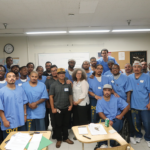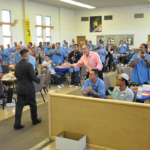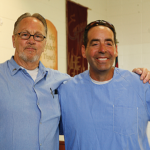The successful San Quentin Kid CAT program for youth offenders is expanding to Lancaster Prison, thanks to help from three former inmates. “It was … [Read more...]
Kid CAT banquet honors the forgotten voices of youth
Kid CAT celebrated the “forgotten voices” of youth at its 2018 annual banquet. “Tonight’s Banquet was about bringing awareness to the youths, who … [Read more...]
Importance of good character and integrity in prison
Cost of reputation, Part 1 Editor’s note: Survival in prison often depends on reputation. A good reputation confers respect and longevity. A bad … [Read more...]
Dear Kid CAT by Mr. Milo
Dear Kid CAT, You guys are awesome. Your work is impressive and helps change societies perception of us. I’d like to share my story with other youth … [Read more...]
Dear Kid CAT, I. Medina,Tehachapi
During the past couple of months I have spoken to several facility sponsors concerning the Kid CAT Childhood development program and support group. As … [Read more...]
KID CAT graduates 43 in its fourth cycle
With a class of 43, the largest graduating class yet, a group of inmate facilitators and advisors were in a boisterous mood as they prepared the … [Read more...]



